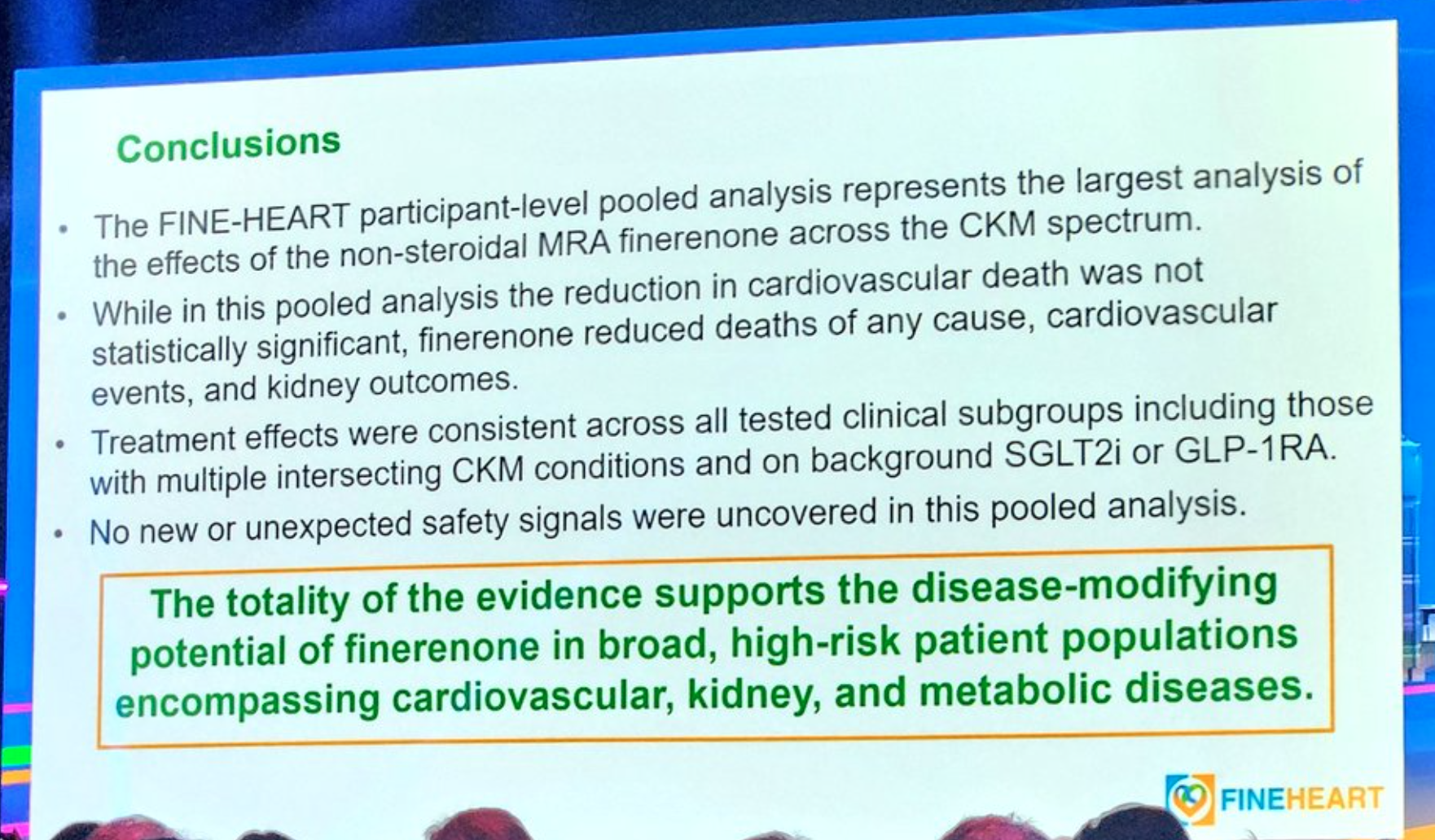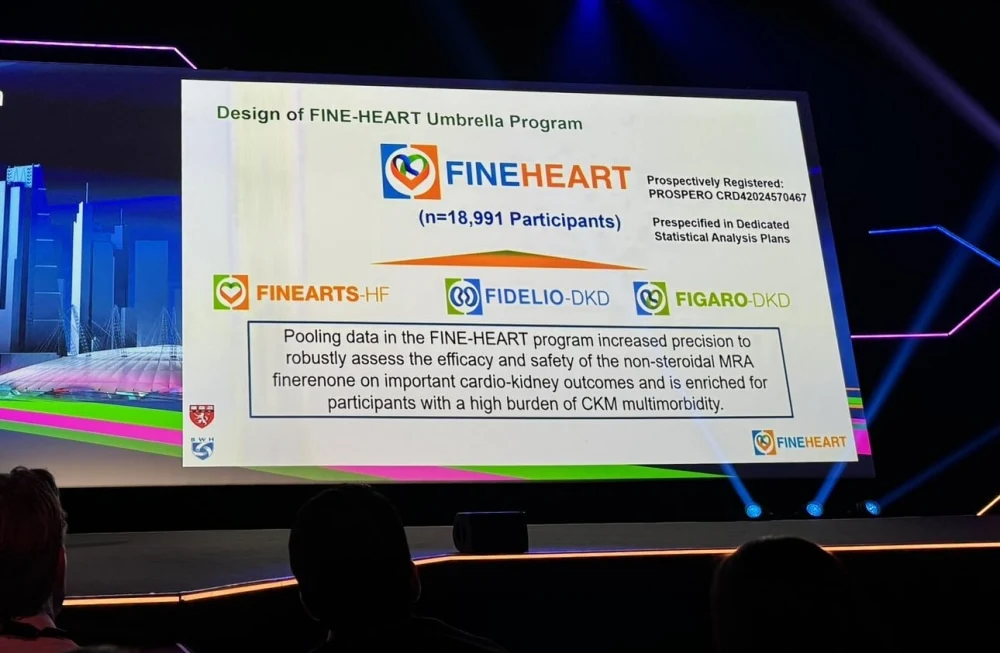A pooled analysis of three major trials presented at #ESCCongress2024 did not show significant reductions in cardiovascular death with finerenone. However, significant decreases in all-cause mortality, cardiovascular events, and kidney outcomes were observed.
Cardiovascular diseases, chronic kidney disease (CKD), and metabolic conditions like diabetes often coexist and share common pathways. Finerenone, a non-steroidal mineralocorticoid receptor antagonist, has been shown in two trials to reduce cardiovascular events and kidney failure in patients with CKD and type 2 diabetes, and it recently demonstrated a reduction in worsening heart failure (HF) events in patients with HF and mildly reduced or preserved ejection fraction.
In this analysis, researchers combined data from these three large trials and found that, although cardiovascular death was not significantly reduced, there were significant reductions in all-cause mortality and clinically meaningful improvements in other outcomes.
The participant-level pooled FINE-HEART analysis included data from the FIDELIO-DKD and FIGARO-DKD trials, which focused on patients with CKD and type 2 diabetes, and the FINEARTS-HF trial, which included patients with HF and mildly reduced or preserved ejection fraction. The primary outcome was time to cardiovascular death. Other prespecified outcomes included a composite kidney outcome, HF hospitalisation, a composite of cardiovascular death or HF hospitalisation, and all-cause death.
The analysis included data from 18,991 participants. At baseline, 81% had diabetes, 84% had CKD, and 37% had HF, with 12% having all three conditions.
Over a median follow-up of 2.9 years, cardiovascular death occurred in 4.4% of patients in the finerenone group and 5.0% in the placebo group. Death from any cause occurred in 11.0% of participants in the finerenone group and 12.0% in the placebo group. Finerenone also reduced the risk of HF hospitalisation and the composite kidney outcome.
The incidence of serious adverse events was lower with finerenone than with placebo (34.6% vs. 36.6%), although serious adverse events leading to drug discontinuation were higher with finerenone (5.4% vs. 4.6%). Laboratory-defined hyperkalaemia was more common with finerenone, while hypokalaemia was less frequent.

This analysis did not show a significant reduction in cardiovascular death, which may be due to the definitions and classifications of cardiovascular death and deaths of undetermined causes. However, study researchers observed significant reductions in all-cause mortality and improvements in a broad range of cardio-kidney outcomes, including kidney disease progression and HF hospitalisations. These findings highlight the potential disease-modifying role of finerenone across the cardio-kidney-metabolic spectrum.
Source, Slide and Image Credit: ESC Congress 2024






